Project News
2016-08-31
Village Health Center Survey
July to August, 2016
The Project conducted "Village Health Center (VHC) Survey" as a baseline survey of the Project in order to fully understand the current situation of VHCs. The targets of this survey are 14 focus VHCs. With staff of the Ministry of Health (MOH) serving as team leaders two survey teams comprised of Japanese experts and the Project local staff were organized. The major findings of the VHC survey are summarized as follows.
- All 14 focus VHCs are staffed with nursing staff and General Practitioners (GPs) visit and provide services regularly.
- Training opportunities for nursing staff at the focus VHCs are very limited.
- Among 14 VHCs, only 2 VHCs are currently providing family planning services (Condoms and pills), while none of the focus VHCs are providing ANC, PNC and child healthcare services.
- Very few Syrian people are using the focus VHCs.
- Regarding the health information system, only recording systems related to GPs’ services and immunizations for children are in place.
- There are no standardized procedures/systems related to FP/RH services available.
- Only four VHCs are conducting health education sessions in their communities. Out of these, only one VHC is implementing a health village program and the other two are carrying out community health activities supported by other organizations.
- All VHCs are located in buildings that are rented and 5 of them are integrated with other residence units.
- Almost all staff are providing services in a room such as a pharmacy equipped with an air conditioner, while there are many rooms. ★ mark in the figure below indicates pharmacy.
- Although an examination room and a doctor’s room are available with desks, chairs and examination beds, it seems no diagnoses nor treatment are being provided in those rooms.
- Although most VHCs have relatively spacious waiting rooms, it seems these rooms are not being well utilized.
- All VHCs have bathrooms with washing water.
- Almost all VHCs have no problems with electricity and water supply.
- Some VHCs are hard to find from the main road because they are located in residential areas.
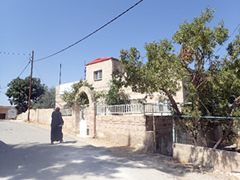 VHC Survey (Kufor Keifa, Irbid)
VHC Survey (Kufor Keifa, Irbid)
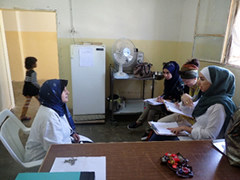 VHC Survey (Al Eduogmoseh, Mafraq)
VHC Survey (Al Eduogmoseh, Mafraq)
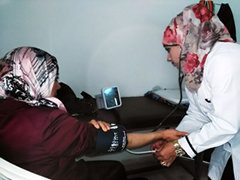 VHC Survey (Al Aqeb, Mafraq)
Providing family planning services at VHC
VHC Survey (Al Aqeb, Mafraq)
Providing family planning services at VHC
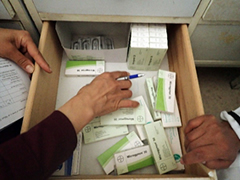 VHC Survey (Al Aqeb, Mafraq)
A problem of stock management
VHC Survey (Al Aqeb, Mafraq)
A problem of stock management
In addition, the VHC infrastructure conditions were summarized as follows.
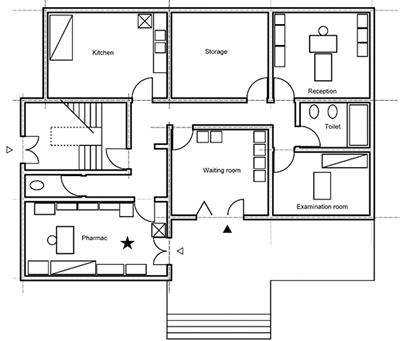 Mandah VHC (Irbid)
Mandah VHC (Irbid)
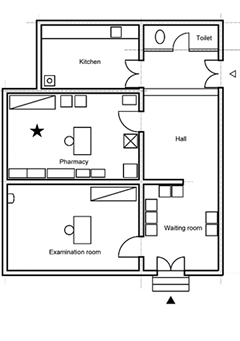 Al Aqeb VHC (Mafraq)
Al Aqeb VHC (Mafraq)
The results of the survey will be reflected in the Project activity plan. The report on the survey is available in both English and Arabic.
- About JICA
- News & Features
- Countries & Regions
- Our Work
- Thematic Issues
- Types of Assistance
- Partnerships with Other Development Partners
- Climate Change / Environmental and Social Considerations
- Evaluations
- Compliance and Anti-corruption
- Science and Technology Cooperation on Global Issues
- Research
- JICA Development Studies Program / JICA Chair
- Support for the Acceptance of Foreign HRs / Multicultural and Inclusive Community
- Publications
- Investor Relations
